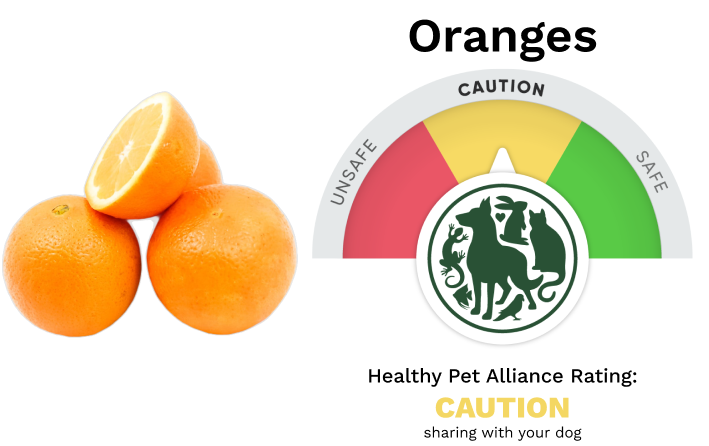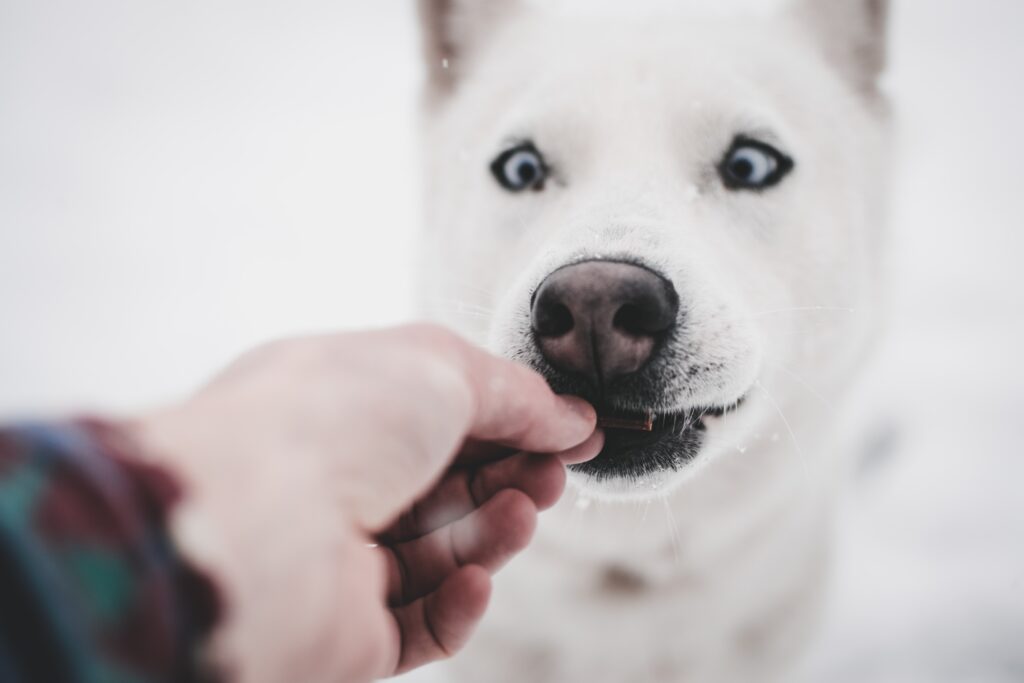

Yes, dogs can eat oranges but only in very small quantities. While oranges are safe and contain helpful vitamins and nutrients, your dog isn't equipped to process the high acidity and sugar in oranges. So knowing how much and the proper method for feeding your dog oranges is important. Continue reading for more information.
Please note that before introducing any new food into your dog's diet, you should consult your veterinarian.
Table of Contents
Oranges offer Vitamin C, potassium, and fiber, all of which are beneficial to your dog. But, the high sugar content in oranges can lead to weight gain or be harmful for dogs with diabetes, and the peel and seeds can be harmful for your dog (learn more later in this article).
Whether or not your dog likes oranges can depend on how they respond to sweet snacks. According to Stanley Coren PhD., DSc, FRSC, dogs can taste sweet flavors just like humans so your dog will like oranges if they like sweet snacks.

While small amounts of oranges are not dangerous for dogs, orange seeds and peels can contain trace amounts of toxins so you should take care to remove both seeds and peels before sharing oranges with your pet. Some dogs may respond to fruits differently, so always check with your veterinarian before introducing a new snack.

Oranges are unsafe for dogs in large quantities and should not be consumed regularly. Consult the feeding chart below to find the amount of oranges that is appropriate for the size of your dog and continue reading for recommended methods of feeding your dog oranges.
If you're feeding oranges to your dog as a treat, remember that treats should only account for 10% of your dog's caloric intake. While dogs can eat oranges, you should not feed your dog oranges every day and only on rare occasions limited to the following:

If your dog ate a few wedges of orange, don’t panic. Small amounts of orange are not dangerous for your dog. Monitor your dog and make sure they do not have an adverse reaction. However, if your dog is experiencing any of the symptoms listed below he or she might be having a bad reaction and you should consult a veterinarian immediately.
If your dog has eaten an orange with the peel included, it is recommended to give your veterinarian a call. They will be able to provide you with the best advice and will let you know if you should bring your dog in to the office for observation or an exam.
One or two seeds will not have any significant impact on your dog, so don’t worry if you miss a couple while preparing a snack. However, if your dog eats an entire orange - seeds and all - a call to your veterinarian is recommended.
Oranges are not poisonous for dogs, but if your dog experiences any of the following symptoms, consult your veterinarian immediately: